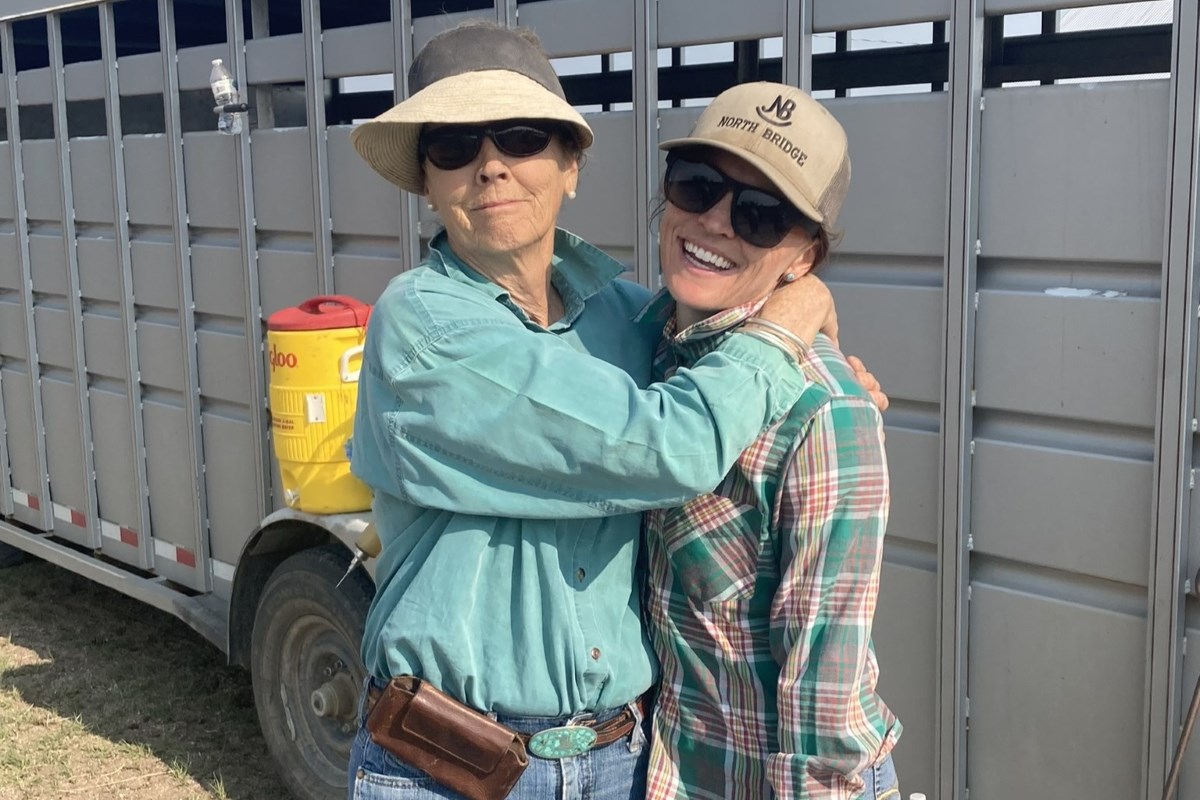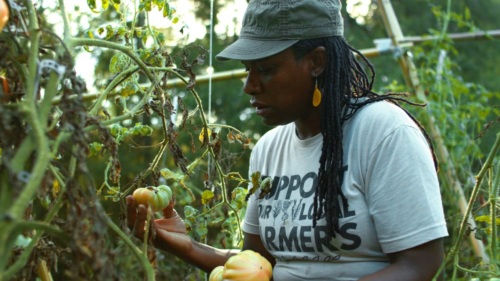
Top 5 Stories Worth Reading — March 2025
Mar 31, 2025
 Maggie Hanna (right) hugs her mom, Ann, on the ranch. Credit: Maggie Hanna
Maggie Hanna (right) hugs her mom, Ann, on the ranch. Credit: Maggie Hanna
Ranching is in the Hanna women’s DNA. Maggie Hanna, her sister Emy, and aunt Karen were all born on the family ranch in Fountain, Colorado. Now, at just 34 years old, Maggie is the fourth-generation owner-operator of the cow/calf ranch, which she runs alongside her mother Ann.
Maggie says that working alongside her family is both one of the “greatest gifts and greatest challenges” on the ranch. When things are difficult on the ranch or in life, she finds having her family with her “in the trenches” is a source of comfort. However, she also acknowledges that working with family means they are “better equipped to drive each other crazy than regular co-workers.”
Maggie and her family are dedicated to carrying on a conservation and sustainability legacy left by her father, Kirk Hanna. In terms of conservation, Kirk was ahead of his time – he adopted sustainable agricultural practices like Holistic Resource Management (HRM) and rotational grazing as far back as the 1980s. He also inspired the family to place a portion of Hanna Ranch under a Natural Resource Conservation Service (NRCS) funded conservation easement, held by Colorado Open Lands, meaning the land cannot be developed.
Maggie in the 2013 documentary “Hanna Ranch.”
When Maggie’s father passed away when she and her sister were young, the rural ranching community in southeastern Colorado “scooped up” the Hanna family and supported them in a profound way. That ongoing community support has inspired Maggie to give back to her community and the ranching industry at large.
In addition to the daily work on the ranch, Maggie is engaged with rural mental health efforts in Colorado and serves as the director of the Central Grasslands Roadmap Initiative, which works to advance the conservation of grasslands across the central U.S., Southern Canada, and Mexico.
Through this work, Maggie has learned about issues impacting farmers and ranchers across the central grasslands and the ways other operators are managing their ranches. She’s gained insights “from across a huge landscape in a trusted space,” which includes conversations about the importance of accessing federal conservation dollars.
Federal funding for conservation is critical for farmers and ranchers to continue feeding our country’s communities while, at the same time, acting as stewards for the land in the face of climate change. But accessing this funding is not always easy. USDA reports that, even with the additional $20 billion added to the conservation programs through the Inflation Reduction Act, they are only able to fund about a quarter of the project proposals that they receive.
It is clear that there is high demand from farmers and ranchers across the country to engage in more conservation programs, but instead of investing in our farmers, some members in Congress are trying to cut this important funding.
At Hanna Ranch, Maggie has utilized USDA and NRCS funding to implement a variety of climate-smart practices such as installing gated pipe, adjusting grazing rotations using cross-fencing, and building livestock watering facilities in order to improve grazing distribution. Without these improvements and the funding that made them possible, Maggie says she wouldn’t have been able to sustain her livestock through the drought that Colorado has faced over the past several years.
Maggie feels that funding conservation programs is “one of the most effective ways to create resilient landscapes and communities” as well as to protect food security and wildlife habitat. “It just feels like it’s a really hard place to go wrong,” she added.
Farmers and ranchers like Maggie are seeing unprecedented changes and pressures on their operations every single day. Now more than ever, they rely on funding from the USDA and NRCS to keep their operations running and continue doing the all-important work of ensuring there is food on tables in communities nationwide.
We cannot let Congress cut funding for this already strained resource.
Tell Congress: we must protect funding for climate-smart agriculture in the Farm Bill so farmers and ranchers, like Maggie, can continue to provide their communities with healthy, nutritious food for generations to come.
Read the first article in the Climate-Smart Agriculture Series:
